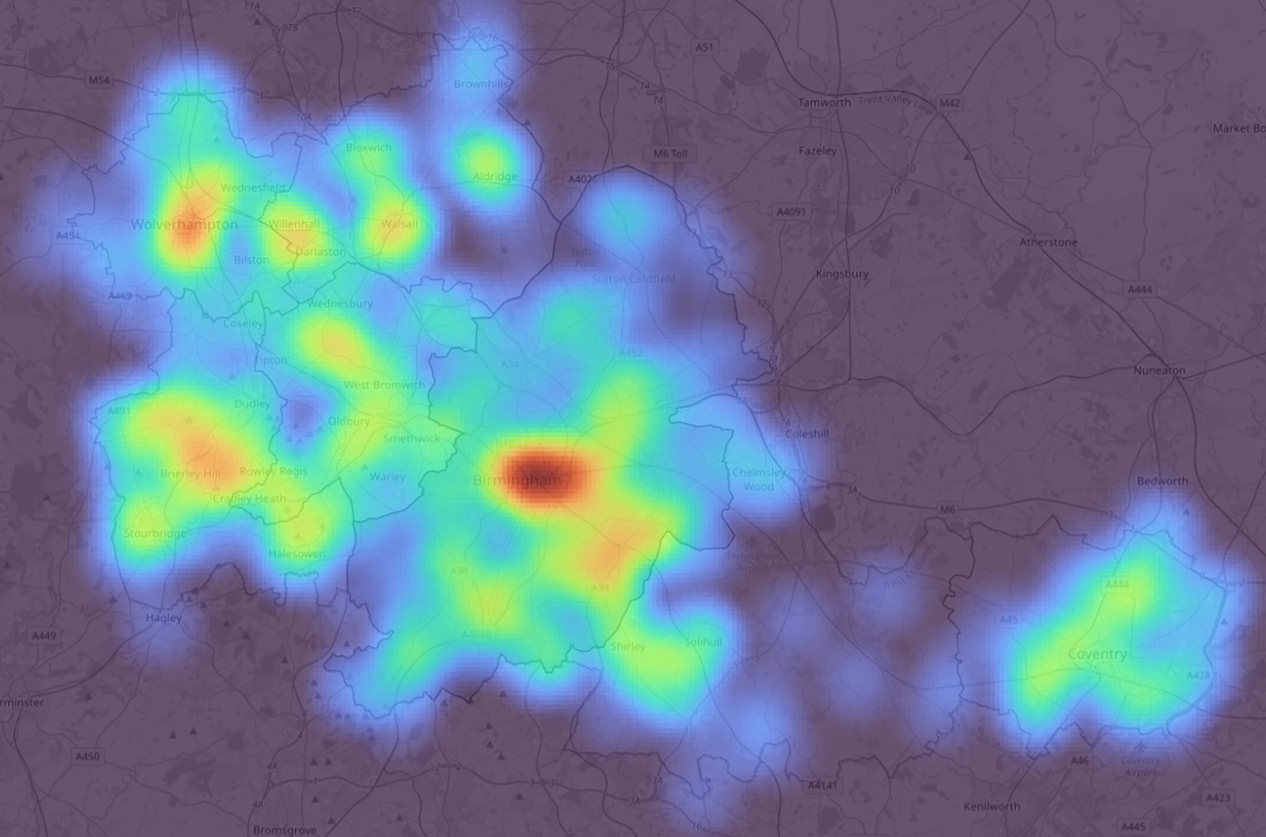
New research to map and assess waste heat potential in cities
Cooling systems generate large amounts of waste heat, but most of that heat goes unused. A new research project led by London South Bank University (LSBU) aims to transform that by identifying and mapping waste heat from urban cooling applications, using Birmingham as a case study.
The Waste Heat Assessment and Resource Mapping (WHARM) project, funded by the EPSRC through the Reef-UKC network, will produce a georeferenced database on energy-intensive sectors such as data centres, supermarkets, cold storage facilities and industrial sites to better understand their waste heat generation and the potential for reuse on site or “export” to neighbours. EPSRC is a funding body for engineering and physical sciences research in the UK, supporting innovations that drive a sustainable and resilient economy. Reef-UKC is a research network focused on integrating renewable energy with clean cooling technologies, aiming to improve energy efficiency and reduce environmental impact through system-level research and sustainable business models. WHARM is a partnership between LSBU, Aston University, Birmingham City Council, Star Refrigeration, and Skilled Mapping.
Project Objectives:
- Identify, map and characterise waste heat from cooling systems in Birmingham.
- Produce economic models to quantify the levelised costs of capturing and upgrading waste heat to different temperature levels.
- Engage with stakeholders to identify challenges such as high costs, uncertainty over business models, and mismatch between heat supply and demand.
- Support local authorities and businesses in making informed decisions when assessing waste heat opportunities.
Dr Henrique Lagoeiro, Research Fellow at LSBU and project lead, said: “The WHARM project is a great initiative bringing together industry leaders and academics to provide a blueprint on how to approach waste heat with data, ultimately building knowledge that can support the decarbonisation of our cities and industries.”
Dave Pearson, Group Sustainable Development Director of Star Refrigeration and Royal Academy of Engineering Visiting Professor to Edinburgh Napier University added: “We often hear off the cuff remarks about how much waste heat there is, but what we really need to know is a more granular level or place, quantity, quality, and cleanliness so we can advise on whether to boost it back up on site with industrial heat pumps or make available to neighbours to use in district heat networks. Just like materials recycling we hope to define a value basis for waste heat so it could even be sold.”